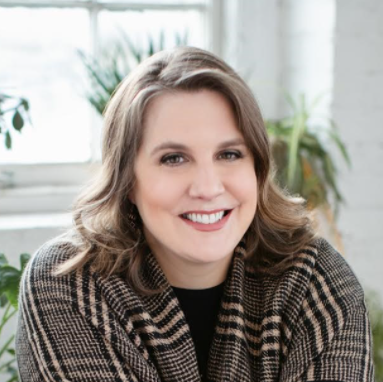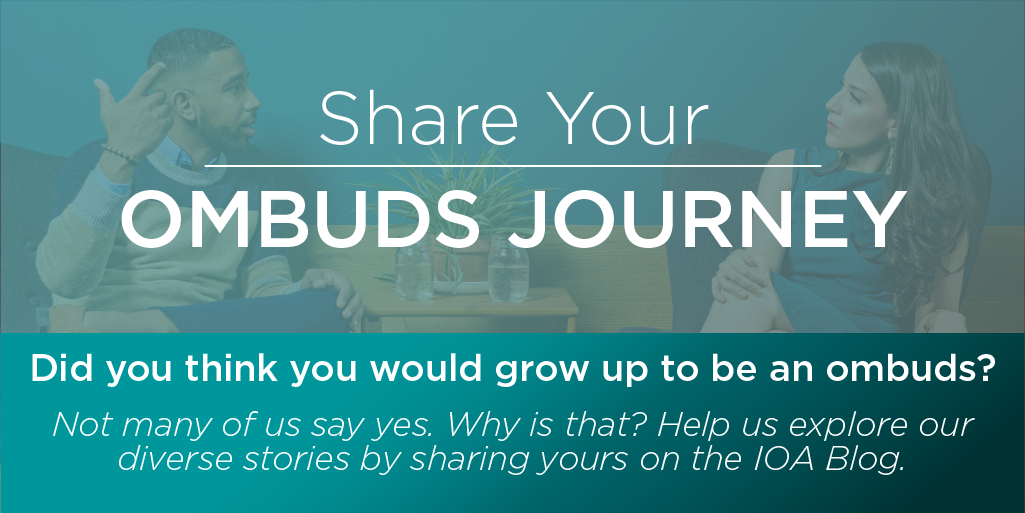The Ombuds Journey: A Consideration of Multiple Contexts
 By Shannon Lynn Burton, Ph.D.,
By Shannon Lynn Burton, Ph.D.,
University Ombudsperson, Michigan State University
Over five years ago, I was asked to put together a presentation to discuss why I wanted to be Michigan State University’s next University Ombudsperson after having served as Assistant and Associate Ombudsperson. What follows is my ombuds journey adapted from that presentation. There, and here, while I do not present a chronological perspective, I do share the multiple contexts that I believe an ombuds must navigate: Theoretical; Historical; Social; Professional and the Personal.
Theoretical
For those that know me, they know I love discussing theory… but more than that, I like making it practical. Theory is often like a computer code running in the background. You don’t often see it running, but you know that it is. In terms of my own code, I pull from two traditions: dialogue, deliberation and public engagement, as well as andragogy. While understanding conflict is a key factor in being an ombuds, understanding student perspectives and growth are really at the heart of this office’s work. For me, these traditions inform both aspects of the office: “student” and “ombuds”. I focus on the democracy perspective in dialogue, deliberation and public engagement, as well as emancipatory learning from andragogy. These approaches have three concepts in common:
- Treating individuals as conscious beings able to actively participate in creating solutions through reflection;
- Increasing capacity for conflict resolution and engaging processes that build democracy; and
- Developing critical thinking skills and creating lifelong learners.
My goal is to develop human capital in managing conflict and improving communication skills in line with the role and purpose of the ombuds office and the university’s mission.
Historical
Arising out of an era of student protest and civil unrest in the 1960s, one vital piece of being ombuds at MSU is its legacy as the longest standing ombuds office at any college or university in the United States created in response to that moment in time. Not only that, our second ombuds was an initial member of the University and College Ombudsman Association (UCOA) which later merged with The Ombudsman Association (TOA) to form the International Ombuds Association (IOA). Understanding its role as a leader in the profession is key to anyone who takes on the role of ombuds at MSU.
I have spent a great deal of time researching the issues that past ombuds have addressed. These histories have allowed me to put the systemic issues that our institution and students are currently grappling with into an historical perspective and help to frame the trends and recommendations that the office puts forth to the administration.
Social
As we discuss the systemic issues and concerns facing our organizations, it would be negligent not to understand the social issues like #MeToo, racial tensions, and political discourse. These issues have been central to articles and presentations appearing in our ombuds spaces. In recent years, conference sessions and articles, including my own, have centered on political discourse and the role ombuds can play within our organizations to alleviate tensions between multiple sides without impacting neutrality. I personally prefer to think about it as passionate impartiality… where I can set aside my own biases and address those democratic and communication processes that allow two sides to come together.
When I first moved into the Office of the University Ombudsperson over eleven years ago, I often described my work as “high conflict academic advising”. In part, it was because that was the frame in which I had really come to understand the university as a professional. As my professional identity has shifted from academic advisor to ombuds… how I approach my work has changed. It is no longer how does my work as an advisor frame the role of the ombuds, but how does my work as an ombuds frame and help improve university practices like advising. As a result, my work in recent years has sought to improve knowledge and highlight systemic issues.
Professional
The IOA’s Standards of Practice frame ombuds practice. These standards create a nuanced relationship with the university and separate us from other resources. They also provide a lens through which we view the organization. On a professional level, I have worked to better understand these standards and the role of the organizational ombuds through my involvement in the IOA. As an under-researched field, these networks are vital to creating an understanding of the role, as well as examining best practices. I continue to serve chair the Research and Assessment Committee and serve as Editor of the Journal for the IOA and find other ways to support the professional development of the field.
Institutional
I have used my “Insider” understanding of the university to assist students and faculty/staff in responding to conflict. I have been a student, an academic advisor, an instructor, and even an administrative professional at MSU and have this unique 360-degree view of the roles, power dynamics and individuals that make up our institutional culture. I have also been a first-generation student and an adult learner, and now a Spartan parent. It is these experiences that offer me a space to be authentic in my engagement and create space for empathy.
Additionally, I have seen the institution from multiple disciplinary and college perspectives. I have served as an academic advisor in the College of Arts and Letters, the College of Social Science, and the College of Business. I have served as an evaluator for a grant in the College of Engineering and I have been a student in the College of Education. In these various spaces, I have gained a knowledge of academic issues related to curriculum, faculty/advisor/student interactions, as well as admissions and scholarships having sat on committees related to each of these areas. Through these lenses, I have witnessed just how various disciplinary cultures impact the interpretation of policy, as well as learned the unique ways that these cultures should be approached and engaged. In my work in the Research Integrity Office, I received firsthand experience in the investigation and hearing processes of the institution.
As a side hustle, I have taught as an adjunct at the undergraduate and graduate levels and at small private liberal arts institutions, regional institutions, and even for-profit organizations. My experience as a faculty member, both face-to-face and online, allows me to see yet another perspective. Additionally given the topics that I teach around learning theory, group dynamics, organization and administration, as well as ethical and legal issues in higher education, I stay current on those areas that effect my ombuds practice.
The other institutional perspective that I bring is that of student affairs. Due to my other supporting roles serving as a faculty/staff advisor in fraternity and sorority life, working with student veterans and Army ROTC, leading study abroad programs, providing advice to multicultural student organizations and other student leadership roles, I offer an additional opportunity for the office to examine the expanse of services the university offers.
Personal
Understanding other cultures has also been a thread that has run throughout my personal life and career. I have lived abroad in Russia and Costa Rica, as well as continue to spend time in South Africa. I have family from Pakistan and China. The understanding of a wide array of cultures compliments the work of the office given MSU’s global perspective and the large population of international students and faculty. (Not to mention, my dissertation centered on campus internationalization, as well as how the university’s bigger messages are often filtered down to students.)
As an undergraduate myself, it was my interests in other cultures and languages that led me to social justice. Exploring equity and inclusion from these frames was one of the major transition points for me as I reflect on why I am drawn to the work of an ombuds now. It is also in this space that I recognize the power of language. When one speaks multiple languages and interacts with multiple cultures, one must be aware of what is said and how it is said.
Finally, I value creative problem-solving. I coached Odyssey of the Mind, an international creative problem-solving competition, for the nine years. Coaching elementary and middle school students in this arena has taught me patience and how to see the humor in the work that I do.
The Next Chapter
It is truly my knowledge of the multiple layers of story and context that impact my work as MSU’s Ombudsperson. I offer perspective, space to reflect, authenticity, and consistency for the MSU community as we work our way through a time of healing and transition. I sought out the job of Assistant Ombudsperson over eleven years ago because I saw it as a unique space to impact student success. I continue to do it because organizations need trusted individuals to turn to when systems fail them and they are seeking honesty, safety, and someone to listen to their story.
How to Submit
This post continues our Ombuds Journey Project series, representing the various pathways one may take in their journey as an ombuds. If you would like to share your journey, please email your narrative to [email protected]. We will be collecting stories throughout the month of June and we encourage both members and non-members to submit and share their experiences here on IOA's Blog.
Requested Details
- Name
- Job Title
- Organization
- Years Active
- Narrative
- Please include a photo of your self for the post.
Need help getting started?
Here are some prompts to help you frame your narrative:
- What first inspired you to fulfill the role of an ombuds?
- How has your educational background helped you succeed in this role?
- What professional experiences helped shape your path?
- What allows you to stay prepared for success in your role?
- How do you care for yourself to ensure your sustainability in this role?
- What guidance would you give others that are interested in starting their journey?

